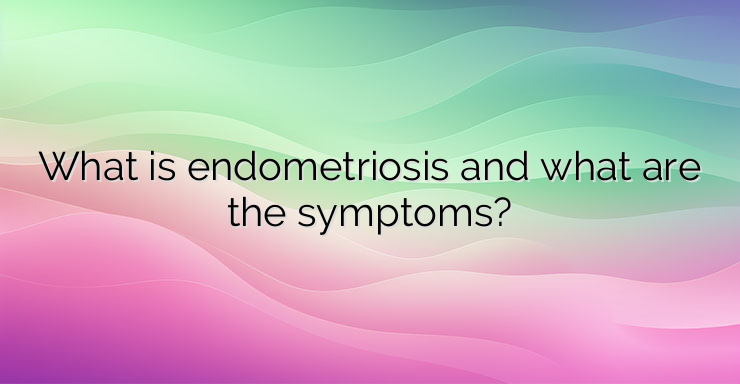Endometriosis is a progressive gynecological disease that affects approximately 1 in 10 women, as well as 40% of patients with fertility disorders and pelvic pain. The disease is characterized by the presence of endometrial lining outside the uterus. These endometrial cells can have different locations – ovaries, fallopian tubes, peritoneum, vagina, digestive system, lungs or even the bladder. Depending on the depth of the lesions and the course of the disease, endometriosis is classified into different stages – from initial to more severe. What are the changes in endometriosis? During the menstrual cycle, these natural cells in the uterus develop in parallel with changes in estrogen levels. When the level increases during the menstrual cycle – these cells grow, and when it decreases – the endometrial tissue gradually breaks down. During menstruation, the lining is shed from the cervix through the vagina, but in endometriosis, these cells, which are often outside the uterus, cannot be shed. Then a chronic inflammation develops, which can gradually increase. In more severe stages of endometriosis, cysts can develop in the ovaries, as well as adhesions between the various affected organs. What are the most common symptoms? Endometriosis is sometimes asymptomatic, making it difficult to diagnose, but it can often be accompanied by symptoms that vary depending on the location of the endometrial cells. Signs that may be associated with endometriosis: Severe abdominal pain – similar to menstrual pain, but not always relieved by contraceptives; Digestive and/or urinary disorders – constipation, diarrhea, pain or difficulty urinating or defecating and others; Constant feeling of extreme fatigue; Pain during intercourse; Bleeding outside of menstruation. Is it possible to get pregnant with endometriosis? Sometimes it is possible to get pregnant, especially when endometriosis is at a minimal stage, but the condition can also lead to difficulty conceiving and even infertility. According to studies, 30 to 40% of endometriosis patients are affected by fertility disorders. Additionally, in 20 to 50% of infertility patients, the leading cause is endometriosis. Why does endometriosis prevent conception? Chronic inflammation can prevent fusion between sperm and egg. Adhesions or blockages in the fallopian tube, which often result from endometriosis, can delay or prevent fertilization. The formation of endometriotic cysts in the ovaries can prevent the proper development of the follicles and impair the quality of the eggs. References: https://www.passeportsante.net/famille/grossesse?doc=endometriose-grossesse-symptomes-risques


Leave a Reply